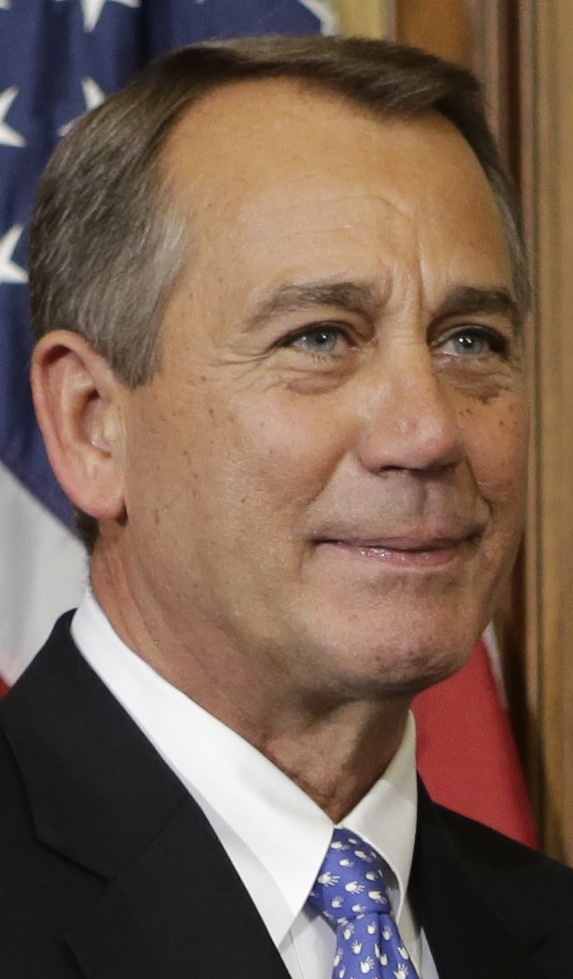WASHINGTON – Republican John Boehner narrowly won re-election Thursday as speaker of the House of Representatives as the 113th Congress convened in an atmosphere of unusual uncertainty and turmoil.
Outwardly, the day had a festive air as children were allowed to sit in House members’ seats and the usually somber halls of the Capitol complex teemed with revelers. Thursday also had an uplifting note, as Sen. Mark Kirk, R-Ill., who suffered a major stroke last year, climbed the 45 outdoor steps into the Senate chamber with the help of Vice President Joe Biden and two Senate colleagues.
There were celebrations of the diversity of the new Congress. The Senate welcomed its first openly gay member. Senate Republicans welcomed the first African-American Republican in three decades. The House Democratic caucus for the first time had a majority of members who weren’t white men.
But there were undercurrents of internal divisions lingering from the fight over the “fiscal cliff,” and signs of partisan battles to come in weeks ahead.
Boehner set that somber tone. “Public service was never meant to be an easy living. Extraordinary challenges demand extraordinary leadership,” the Ohio Republican told the House.
“So if you have come here to see your name in lights or to pass off political victory as accomplishment, you have come to the wrong place. The door is behind you.”
Even the election of the speaker, usually a routine matter, had moments of tension. Twelve Republicans didn’t vote for Boehner, and his 220-vote total matched the lowest for a speaker in 14 years, when there were fewer Republicans.
The dissenters were conservatives who’ve complained that Boehner is too willing to deal with Democrats. They’re still upset over the fiscal cliff deal, saying it didn’t contain enough spending cuts; 151 Republicans voted against the plan, and it passed only because of Democratic votes.
Boehner has tried to get tougher, as four Republicans were tossed off key committees, and he tried earlier this week to get a majority for a massive spending-cut package. But the suspicions lingered, and Democrats signaled Thursday that they’re going to dig in.
House Democratic leader Nancy Pelosi of California was somewhat more partisan in her acceptance speech to the House. Her calls for more diversity and immigration restructuring drew standing ovations from Democrats, while most Republicans stayed in their seats, not applauding.
“The strength of our democracy will be advanced by bold action for comprehensive immigration reform,” she said.
In the Senate, Republicans took the less conciliatory tone. Minority Leader Mitch McConnell, R-Ky., who helped craft the fiscal cliff deal, called it “imperfect,” although he said it had settled Washington’s long debate about raising revenue.
“The president got his revenue; now it’s time to turn squarely to the real problem, which is spending,” he said. “In a couple of months, the president will ask us to raise the nation’s debt limit. We cannot agree to increase that borrowing limit without agreeing to reforms that lower the avalanche of spending that’s creating this debt in the first place. It’s not fair to the American people.”
The Democratic leader urged calm. “The recent effort to avert the fiscal cliff was an example of both the divisions and the collaborations that will mark a moment in history — and it was a moment in history,” said Senate Majority Leader Harry Reid of Nevada.
The new Congress began with slightly more Democrats than its predecessor had. The party now controls 55 Senate seats, up two from the last Congress. In the House, Republicans have a 233 to 200 majority, down eight seats.
The makeup is slightly different. For the first time, the House Democratic caucus doesn’t have a majority of white men. Eighteen percent of House members and 20 percent of senators are women. Nineteen percent of House members and 6 percent of senators are minorities.
Senators who won election or re-election were called in alphabetical small groups and sworn into office by Biden, who’s the president of the Senate. Sen. Tim Scott of South Carolina made history as the first African-American senator from the South since Reconstruction and the first African-American Republican senator since Ed Brooke of Massachusetts left in 1979.
Sen. Tammy Baldwin, a Wisconsin Democrat who beat former Republican Gov. Tommy Thompson for the Senate seat vacated by Democrat Herb Kohl, became the first openly gay senator.
Reid put off any first-day bickering by the new Senate class when he postponed action on revamping debate rules. The proposal, by Sens. Tom Udall, D-N.M.; Jeff Merkley, D-Ore.; and Tom Harkin, D-Iowa, has drawn fire from Republicans as well as a few Democrats.
Send questions/comments to the editors.



